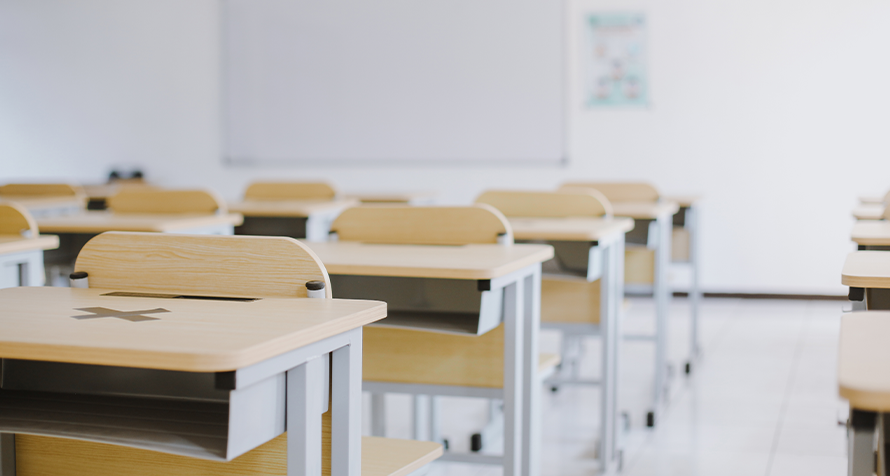
The Lake Superior State University School of Education promotes the development of educational innovators who embrace diversity and are committed to the success of all learners.
Studying education can have profound impacts on both individuals and communities. Here’s how:
1. Sense of Place: Education fosters a sense of belonging and identity within communities. Schools and educational institutions often serve as hubs where cultural, social, and intellectual exchanges occur, strengthening community bonds.
2. Contribute to the Community: Education is fundamental to societal progress. Educators play a crucial role in shaping future generations, imparting knowledge, values, and skills that contribute to a community's growth and development.
3. Creative Outlet: Teaching is a creative profession. Educators constantly innovate in their teaching methods, develop engaging curriculum materials, and find unique ways to inspire and motivate students, making each day different and fulfilling.
4. Change or Influence the Future: Educators have the power to influence and shape the future through their students. By imparting knowledge, critical thinking skills, and values, educators empower individuals to become active citizens who can positively impact society.
5. Visible Results: Seeing students grow, learn, and succeed is one of the most rewarding aspects of education. Educators witness tangible results of their efforts as students achieve academic milestones, gain confidence, and pursue their goals.
Studying education goes beyond preparing individuals for a career; it equips them with the tools to shape minds, contribute to communities, and foster positive change in society, all while experiencing personal and professional growth through continuous learning and creative expression.
Real-world classroom experience is a hallmark of all programs in the School of Education. Beginning in the first year, students complete classroom experiences as part of their professional education coursework. Students are placed at appropriate levels in early childhood, elementary schools, and secondary schools. The School of Education is committed to preparing teachers for small, rural schools, which have unique cultures and expectations. Through partnerships with schools in the Eastern Upper Peninsula and in Ontario, School of Education students work closely with cooperating teachers in their classroom experiences and culminating in the student teaching experience.
A track in Early Childhood Education prepares students to provide high quality education and care for children birth through age eight in a wide variety of settings. Graduates are qualified to work as teachers and directors in:
Students develop their understanding of typically and atypically developing children through integrated coursework and field experience, as well as two semester-long practicums. The required minor provides the opportunity for students to explore a related field, adding to their knowledge and skills for working with young children and their parents, or expanding their expertise for employment opportunities.
The Elementary Teacher Preparation Program is highlighted by the interaction of content knowledge and pedagogical skills in effective teaching. Students will engage in clinical experiences throughout the program as they plan, deliver, and reflect on learning activities with children at the Pre-Kindergarten-3 and 3-6 levels.
A Year-by-Year Overview:
The Secondary Education Program is highlighted by in-depth study in a subject major and a subject minor, extended field experience in secondary school settings, and focused development of the knowledge and skills critical for effective teachers. The program leads to a bachelor of arts or a bachelor of science degree in the student’s major area.
Secondary-level teacher certification in Michigan permits individuals to teach the subject areas, in which they hold endorsements, at grades 5-12. The subject majors and minors provide the required coursework for the related endorsements. Completing the coursework and passing the corresponding Michigan Test for Teacher Certification subject test enable graduates to meet the requirements of No Child Left Behind and to be highly qualified in their subject areas.
Majors
Students begin their studies in the secondary education program with a focus on general education requirements, an academic major and an academic minor. They complete the initial professional education coursework in their sophomore year and apply for formal admission to the program at the end of that year. By that time, they will have also passed the Michigan Test for Teacher Certification Professional Readiness Examination.
Upper-level professional education coursework, along with the completion of the major and minor, is the focus for the junior and senior years. Student teaching, a semester-long culminating experience, may be completed in the spring of the fourth year or the fall of the fifth year, depending on the individual student’s progress through the program. Generally, this student teaching experience will be in the Eastern Upper Peninsula or in Sault Ste. Marie, Ontario. The Michigan Test for Teacher Certification subject test in the major must be passed prior to beginning student teaching.